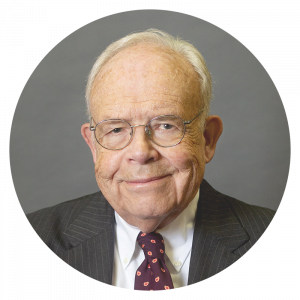By: SPENCER G. NAUMAN, JR.

How can a donor advised fund assist a business with orderly charitable giving?
No matter how big or small, many of today’s businesses look to invest in the community by donating to charitable organizations. Unfortunately, restrictions and legal issues have made donating increasingly difficult. Recently, some businesses have discovered that giving through donor advised funds is an easy and more beneficial way to make charitable donations.
While many businesses invest in their communities by giving to charitable organizations they are often inundated with requests for contributions. This can result in an unfocused program of charitable giving and significant administrative expense. Some companies may be unable to budget a consistent flow of charitable dollars.
By establishing a nonpermanent donor advised fund at a community foundation or other foundations having such funds, businesses can simplify and focus the giving process. The foundation handles the administrative paperwork, check writing, investment oversight and grantmaking at a low cost.
A nonpermanent donor advised fund named for the business donor will provide a dependable and committed source for charitable grants even during years when cash flow at the donor business is tight. In good times, the company can add to its fund, thereby providing flexibility to even out the highs and lows inherent in most business cycles.
What is a donor advised fund?
A donor advised fund is an advantageous way to make charitable contributions and stay in the grantmaking process. Through a donor advised fund, the donor, or an advisory committee chosen by the donor, recommends grants to be made to nonprofit organizations or governmental entities. Subject to sponsoring foundation criteria, the sponsoring foundation then makes grants from the fund. Donors may also designate successors to advisory committee members to continue recommending grants. Alternatively, a donor can arrange for the fund to become an unrestricted fund or an area of interest fund if and when it no longer wants to have an advisory role or an advisory committee.
Donor advised funds are also an alternative to private foundations. As laws applicable to private foundations make it more difficult for such organizations to qualify for tax exemption and complicate their administration, donor advised funds become even more attractive to prospective donors. If a donor is considering establishing a private foundation to carry out charitable interests, a prospective donor should consider establishing a donor advised fund instead.
Donor advised funds are component funds of a community foundation or other sponsoring foundations having such funds. This means that the funds can be an immediate way of providing a vehicle for tax deductible charitable donations without the lengthy establishment time for organizing a private foundation and having its ability to receive tax deductible contributions recognized by the Internal Revenue Service.
Donors who create private foundations frequently struggle with long-term governance questions. With a donor advised fund, succession is addressed in advance with provisions for appointment of successive committee members or change to an area of interest or restricted fund.
What are the tax advantages of donor advised funds?
Donor advised funds offer significant tax benefits over private foundations. For federal tax purposes, gifts to private foundations of appreciated property (other than publicly traded securities) are deductible only at the donor’s cost basis. However, gifts of appreciated property made to a donor advised fund are deductible to the donor at their current fair market value. This difference can result in substantial tax savings to the donor.
The IRS imposes an excise tax on the net investment earnings of private foundations. This tax amounts to either one or two percent of net investment earnings, depending on the foundation’s distribution pattern. A foundation’s donor advised funds are not subject to the excise tax. Private foundations are required to distribute 5% of their net investment assets each year, while community foundations are not. This means that a donor and a foundation can agree to “grow” a donor advised fund by reinvesting earnings in anticipation of making larger gifts.
The IRS also provides strict limits on the amount of stock that can be transferred to a private foundation by directors or donors of a private foundation. A community foundation or other foundation which is not a private foundation is not subject to these limits. This allows individual donors who are major shareholders of their companies to make more tax-advantageous gifts to donor advised funds.
Donor advised funds are a simple way for a business to donate to charitable organizations. If used correctly a donor advised fund will enable the charitable organization to make the most out of the contribution while the business gets a maximum return on the donation.
Spencer G. Nauman Jr., is the senior partner of the Harrisburg law firm Nauman, Smith, Shissler and Hall, LLP, Harrisburg’s oldest law firm. Mr. Nauman has been a lawyer with the firm for more than 40 years and his primary practice areas are corporate, probate/estate planning, taxation and insurance. Mr. Nauman represents several community foundations and the state community foundation organization. He is serving or has served as Director and President of community health, educational and social service organizations.
Reprinted with permission.
CONNECT WITH US
We can help your clients give strategically, intentionally, purposefully and EASILY, while also helping them to maximize their tax savings. Give us a call at 717.236.5040 or email us at philanthropy@tfec.org.
.
